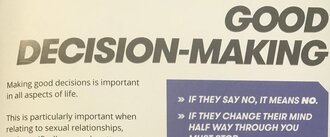-
End Youth HomelessnessDuring Covid-19 young people experiencing homelessness have been at increased risk. There has been no coordinated, or youth specific strategy to provide for the needs of young people, and no housing made available to specifically meet their needs. We know that young people are over-represented in the homeless community, with young Maori, and rainbow youth, disproportionately affected. We know that there is limited safe, secure and suitable accommodation for young people experiencing homelessness. We know that - due to limited resources - Youth Housing services are having to turn hundreds of young people away. Yet, our nation has no youth specific strategy - and has provided limited resources - to meet the needs of some of the most vulnerable members of our community. If you are a young person, and you experience homelessness in New Zealand, your options for finding emergency accommodation are low. If you're 16-17yr's old, your chances get even bleaker. With the gains made during COVID19 for our homeless community we have an opportunity as a nation to end rough sleeping in Aotearoa for ever. However, to end homelessness, we must first End Youth Homelessness. To do this, we need your help. Manaaki Rangatahi call on Aotearoa, and the NZ Government, to join with us to #EndYouthHomelessness. Will you sign the petition and support the call and help us to #EndYouthHomelessness? You can read more about Youth Homelessness here: Youth Homelessness is Hidden Homelessness: https://www.stuff.co.nz/national/116095068/the-hidden-homeless-alarming-child-and-youth-homelessness-in-auckland If we truly want to end homelessness, we need to start here: https://www.noted.co.nz/currently/currently-social-issues/nz-ending-homelessness-starts-with-helping-young-people7,855 of 8,000 SignaturesCreated by Aaron Hendry
-
School Strike 4 Climate NZ & 4 Tha Kulture Open Letter Calls For Covid Green ResponseAs the youth of Aotearoa, it is important that the decision and projects that we put forward work around securing our generation a safe future. The children of New Zealand will be paying off the debt collected from the stimulus project. We demand that you, as the leaders of today, ensure us a safe future926 of 1,000 SignaturesCreated by School Strike 4 Climate NZ

-
Abolish interest during mortgage holidays while the Covid-19 crisis occursBanks have only offered the same mortgage holiday terms applicable in ordinary circumstances (pre-pandemic). While other businesses are pulling out all stops to help and may not survive, banks are effectively doing nothing. We have been told that the recession arising out of this crisis will be far worse than the GFC, therefore the measures put in place need to be stronger. Many people are in greatly reduced circumstances due to lock down. Many have, or will, lose their jobs and may take some time to find a new one. In the short term this greatly affects young people with new mortgages, low income mortgage holders, and people who have had to re-finance recently due to unforeseen reasons. It also penalises people who have been paying diligently for some time, causing them to go backwards too. Landlords who hold mortgages over their properties may want to ease the pressure on their tenants finding rent, by decreasing their liabilities too. In the longer term adding interest increases household debt so people will have less spare cash to spend in the economy after the crisis, slowing recovery. Lack of money in society at this time can lead to increased social problems and crime. These are extraordinary times, we need extraordinary social measures. New Zealand banks are not following our Government’s and other NZ Business's good example, and we are well aware of the huge profits banks have been making in recent years. Your signature here will make a difference to the world we experience after this pandemic passes.60 of 100 SignaturesCreated by Miriam Isabelle
-
Protect First Responders: #SayNo to Revenge Based PolicyFirst responders are the people who are first on the scene of an emergency and do so sometimes at risk of harm to themselves. They need our complete support and protection from the risks involved in the essential work they do. However the proposed Protection for First Responders and Prison Officers Bill now going through Parliament fails to provide a solution to the issue which it seeks to address. The Bill if passed will create a new offence – injuring a first responder or prison officer with intent to injure – and carry a mandatory minimum sentence of six months’ imprisonment. This will not prevent any assaults on First Responders or Prison Officers. Policies based on ideas of punishment and revenge do not help to reduce violent crime or protect our First Responders. Many people who commit these kinds of crimes are not safe, stable, or in a sound mind at the time that the crime occurs and are the people who need support themselves. Many of the people this Bill would affect if made law would be people suffering from extreme trauma, addiction, mental illness and mental distress. The Bill would send people who themselves need help into the court system and increase Aotearoa’s already too-high prison numbers. This bill fails to recognize that many of the people who will be affected by this bill are not in a rational or calm state of mind during the time these assaults occur. People who could be severely distressed, mentally ill, intoxicated, or any combination of the above at the time the offence occurs. If this bill goes through it will have catastrophic consequences for our communities. We know that the justice system disproportionately causes harm to Māori.[ref] This bill, if it goes through, will continue to work within this racist system sending more Māori through the justice system rather than the health system. When you send one of our whanau to jail, it does not just affect the individual. It harms all of us. The children left behind without parents, the partners left alone to manage on their own, the whanau and friends who have to struggle with the stigma and loss of losing someone they love. If the Government is serious about keeping First Responders and Prison Officers safe, it needs to address the root causes. We believe Parliament would be better served using our time and resources seeking real solutions. For example: ★ Focus on prevention (as outlined above). ★ Review the calibre and frequency of de-escalation and assessment training provided to First Responders and Prison Officers. ★ Provide ongoing de-escalation and assessment training to all professionals working on the front line. ★ Provide intensive training for all first responders and prison officers around addiction, mental illness, and the effects of trauma and colonisation. ★ Bring back the previous government's plan to create a mental health team equipped to support the Police and our First Responders in de-escalating and caring for people in crisis and suffering from mental distress. This is now being trialed in Wellington. ★ Review whether First Responders and Prison Officers have the right support to manage these high and complex situations they are being asked to walk into. Are they staffed adequately to deal with these situations? Do they have adequate safety and support plans in place to mitigate the risks they are dealing with? If not, the Government must fully resource these services, providing them with what they need to do the job safely. To protect our First Responders and Prison Officers we must provide solutions that prevent them from being harmed in the first place. A serious commitment to our First Responders safety would address the impacts of colonisation and generational trauma, would look at ending poverty, increase support for our under resourced mental health and addiction services, and would fast track the reform of our current Justice system in order to ensure that it heals victims, and restores those who perpetrate crime back to healing and wholeness. In January we made a submission to the Justice Select Committee to make these recommendations, and we thank you for your support so far. However the Bill will still go forward to its Second Reading, and Parliament will get another chance to vote on it. If you want our politicians to #SayNo and #EndRevengeBasedJustice, then please sign. Your signature will be delivered together with others as a petition to Andrew Little, the Minister of Justice, prior to the Second Reading of this bill If you would like to read more about this bill you can do so here: Revenge Based Justice Wont Keep First Responders Safe, Noted, 23 Jan 2020 https://www.noted.co.nz/currently/currently-crime/revenge-justice-wont-keep-new-zealands-first-responders-safe Law change not necessary to protect first responders, NZ Law Society, 9 March 2020 https://www.lawsociety.org.nz/news-and-communications/news/law-change-not-necessary-to-protect-first-responders,-says-law-society172 of 200 SignaturesCreated by Aaron Hendry
-
Let Martine Abel-Williamson Stand for President of the World Blind UnionI hope you will agree it is completely unacceptable for the Board of Blind Low Vision NZ, as a public charity and New Zealand's primary provider of blindness services, to hide from scrutiny and take such a defiant, unilateral, and provocative action against a high profile blind New Zealander, without a word of explanation. The Board's actions are so hard to explain that some are asking what on earth is really going on. One director, Clive Lansink, has openly stood up to say that he is embarrassed by this decision. He has said that he did support Martine's nomination, and he knows of no genuine reason why the Board of Blind Low vision NZ has chosen to block her aspiration to stand as President of WBU. They have agreed to support her to stand again as Treasurer, so cost cannot be the reason. We and many others believe that a decision like this must be open and transparent and should fully take into account the clearly stated wishes of Blind Citizens NZ as Blind Low Vision NZ's DPO partner. We're here to support Martine and we hope you are also. But at the same time, we hope you agree that the Board of a public charity like Blind Low Vision NZ should not behave like this. Please join us in calling for the Board of Blind Low Vision NZ to come out of hiding and enthusiastically give its support to Martine as a passionate, hard-working, successful, blind New Zealander - the person that Blind Citizens NZ has nominated as its candidate for WBU President. Note: if signing this petition from overseas, please just enter 0000 when asked for your postcode. The following links may be useful if you want to quickly check more into Martine's background: Receiving qSM: https://www.scoop.co.nz/stories/GE1806/S00011/martine-abel-williamson-awarded-qsm.htm Attitude ACC Supreme Award: https://www.stuff.co.nz/national/108946777/martine-abelwilliamson-wins-attitude-award-for-changing-the-lives-of-people-living-with-disabilities World Blind Union global website: http://www.worldblindunion.org/English/Pages/default.aspx World Blind Union Asia Pacific website: http://wbuap.org358 of 400 SignaturesCreated by Mary Schnackenberg
-
End the detention and abuse of Palestinian childrenEach year the Israeli military detains and prosecutes around 700 Palestinian children. Under Israeli military detention, Palestinian children as young as 12 are routinely: * Taken from their homes in night time raids at gunpoint. * Blindfolded, bound and shackled. * Interrogated without a lawyer or relative and with no audio-visual recording. * Put into solitary confinement. * Forced to sign confessions – often in Hebrew, a language they do not understand. Israel is the only country in the world to automatically prosecute children in military courts that lack basic safeguards for a fair trial. From the moment of arrest, Palestinian children encounter ill-treatment and torture at the hands of Israeli forces. Three out of four experience physical violence during arrest or interrogation (UNICEF, 2013). We believe that the New Zealand Government must make a public statement about the measures it will take to put pressure on the Israeli government to end the ill-treatment of Palestinian detainees. The full recommendations of Defence for Children Palestine are listed here: https://www.dci-palestine.org/issues_military_detention For more information: http://www.militarycourtwatch.org/ http://www.addameer.org/the_prisoners/children https://www.middleeastmonitor.com/20190418-israel-detained-1600-palestinians-230-children-in-2019/ https://www.unicef.org/oPt/UNICEF_oPt_Children_in_Israeli_Military_Detention_Observations_and_Recommendations_-_6_March_2013.pdf https://nwttac.dci-palestine.org/ https://www.dci-palestine.org/3,737 of 4,000 SignaturesCreated by Justice for Palestine .

-
Say NO to revenge based policy: Oppose NZ First's 1st Responders BillWe are concerned that the Protection for First Responders and Prison Officers Bill fails to provide a solution to the issue which it seeks to address. This bill fails to recognize that many of the people who will be affected by this bill are not in a rational or calm state of mind during the time these assaults occur. Many of the people affected by this bill will be punished for an action which they did not have full control over at the time of the offence. People who were not making a calculated decision to harm someone, but who were in fact reacting out of the pain and trauma they were experiencing. People who are - no doubt - severely distressed, mentally ill, intoxicated, or any combination of the above at the time the offence occurs. If this bill goes through it will have catastrophic consequences for our community. When you send one of our whanau to jail, it does not just affect the individual. It harms all of us. The children left behind without parents, the partners left alone to manage on their own, the whanau and friends who have to struggle with the stigma and loss of losing someone they love. And when that person has done their time and they are released back to us, they will be only further traumatized and harmed by a system which is just not working to rehabilitate our people. This bill will not prevent people from assaulting First Responders or Prison Officers, instead it will succeed only in increasing our prison numbers. Instead of seeking punitive responses to complex problems, we believe parliament would be better served using our time and resources seeking out real solutions. For example: ★ Review the calibre and frequency of de-escalation and assessment training provided to First Responders and Prison Officers. ★ Provide ongoing de-escalation and assessment training to all professionals working on the front line. ★ Provide intensive training for all first responders and prison officers around addiction, mental illness, and the effects of trauma and colonization. Build understanding within our frontline workers so that they are equipped to identify the risks and respond accordingly. Knowledge is power, and the more our First Responders and Prison Officers understand about the complex challenges facing people within our community, the more equipped they will be to deescalate tensions and provide a compassionate and effective response. ★ Bring back the previous governments plan to create a mental health team equipped to support the Police in de-escalating and caring for people in crisis and suffering from mental distress. ★ Review whether First Responders and Prison Officers have the right support to manage these high and complex situations they are being asked to walk into. Are they staffed adequately to deal with these situations? Do they have adequate safety and support plans in place to mitigate the risks they are dealing with? To protect our First Responders and Prison Officers we must provide solutions that prevent them from being harmed in the first place. The concern we have with the Protection for First Responders and Correction Officers Bill is that it fails to actually address the concerns it seeks to highlight. It will not prevent our First Responders and Prison Officers from being assaulted, and will only punish the very people who need our help and assistance the most. Our hope is that parliament will not proceed with this bill, but rather will redirect it’s energy into providing solutions that will mitigate the risk that our First Responders and Prison Officers face, with the goal of preventing these assaults from happening in the first place. If you would like to read more about this bill you can do so here: https://www.noted.co.nz/currently/currently-crime/revenge-justice-wont-keep-new-zealands-first-responders-safe The Protection for First Responders and Prison Officers Bill https://www.parliament.nz/en/pb/bills-and-laws/bills-proposed-laws/document/BILL_78241/protection-for-first-responders-and-prison-officers-bill74 of 100 SignaturesCreated by Aaron Hendry
-
Increase funding for legal aid in Budget 2020New Zealanders believe in fairness. We believe people should be given a fair go. But as it stands, successive governments’ underfunding of legal aid has allowed access to justice to become a privilege reserved only for the rich. In 2016 the Law Society found that the average charge-out rate for lawyers was a staggering $292.70 per hour plus GST.* If you work a 40 hour week on minimum wage, that’s a week’s pay gone in just two hours! The representation, advice, and support from legal aid lawyers is a crucial bridge to access to justice for the many whānau who are unable to front exorbitant legal fees. It is meant to be a safety net for people who cannot afford a lawyer and can be the difference between having the opportunity to right wrongs and rebuild your life, or ending up in the overcrowded cages we call jail. Legal aid is also one of the only ways people can access Section 27 cultural reports, which examine the reasons why people cause harm or offend in the first place in order to inform sentences that result in less harm and more good in the future. For too long, people in government have neglected legal aid and placed unfair restrictions on who can qualify for help. As a result, more and more people are going into a spiral of debt or having to represent themselves in court without professional legal support. We want to see a significant increase to funding for legal aid in Budget 2020 to make sure justice and legal representation is available to all - not just the few. References and further reading: Access denied: Thousands brave NZ courts without a lawyer due to cost. NZ Herald, 4 November 2018. https://www.nzherald.co.nz/nz/news/article.cfm?c_id=1&objectid=12277484 The New Zealand Legal Services Mapping Project: Finding free and low-cost legal services. Civil Justice Insights Series: University of Otago Legal Issues Centre, 2018. Kayla Stewart and Bridgette Toy-Cronin. https://ourarchive.otago.ac.nz/bitstream/handle/10523/8054/Mapping%20UOLIC%20Report%2023%20May.pdf?sequence=3&isAllowed=y Charge-out rates information released. New Zealand Law Society, 2016. https://www.lawsociety.org.nz/lawtalk/lawtalk-archives/issue-893/charge-out-rates-information-released. *This research focussed on lawyers employed at law firms Legal aid funding limits creating ‘justice gap.’ Stuff. 19 July 2014. http://www.stuff.co.nz/national/10285613/Legal-aid-funding-limits-creating-justice-gap Lawyers duck legal aid work. Stuff. 26 July 2014. http://www.stuff.co.nz/the-press/10312946/Lawyers-duck-legal-aid-work1,265 of 2,000 SignaturesCreated by Team ActionStation

-
Bring Priya and her girls to safety in New ZealandMost of us believe family comes first. But in just a matter of days, some people in the Australian government could deport two small girls to their death - unless the New Zealand government offers them safety. Picture this: Two small girls scream with fear as they are forced to watch their mum being physically dragging onto a plane - she fights the attempt to deport her back to Sri Lanka, a country she escaped after watching her fiancé be burnt alive. Priya knows that if she and her daughters are forced back, her daughters may suffer the same fate, or even worse as revenge for her escape, like any mum, she is fighting for her children’s safety. Tharunicaa and Kopika are 2 and 4, they were born in Australia and have lived their whole lives in the town of Biloela, a community that loves them and their parents Priya and Nades and is desperately fighting for them to stay. The whole town wants them back home, but instead the Australian government has sent them to Christmas Island, a detention centre routinely used for the deportation of people with criminal convictions and which our own politicians have described as disgraceful. While the Australian government is refusing to let them go home, we are begging the NZ government to step in and save these two girls from likely death. A temporary court injunction has stopped the deportation until Friday this week but without an intervention, their future remains uncertain and terrifying. New Zealand has previously taken refugees rejected by Australia. In 2001, Australia refused entry to 433 refugees on the Tampa. Those people were welcomed by New Zealand and have gone on to become small business owners, doctors, nurses, public servants, students, keen rugby players and even a Fulbright scholar. Priya’s husband, Nades, who she met in Australia has been working in the Biloela meatworks for over five years until they were taken into detention. He is hardworking and capable and, with meatworks employers across New Zealand screaming out for more workers he can start working straight away to support his family. They are the kind of family New Zealand needs and could have the same incredible impact on any new Zealand community that they have on the families of Biloela. They are now two days away from being deported back to danger. They are the only refugees on abandoned Christmas Island prison. Tharunicaa and Kopika cannot stop crying, asking when they can leave this scary place and go back to their home. It’s time for us to bring them here and allow them to make New Zealand their home. Read more: https://www.theguardian.com/australia-news/2019/sep/04/biloela-tamil-familys-deportation-blocked-until-at-least-friday1,945 of 2,000 SignaturesCreated by Karen Skinner
-
Save Tumu KaitunaTumu Kaituna 14 has been recognised by Heritage New Zealand as land that holds considerable significant historical, archaeological, cultural importance to all of New Zealand and has areas on the land designated for protection and preservation. Our concerns are the proposed urban development will destroy one of the few significant and unique historical, cultural, spiritual and environmental places we have left in Tauranga Moana which runs along our sacred Kaituna River. We want to keep one of the last remaining pieces of Māori-owned land at Pāpāmoa (Aotearoa New Zealand) in Māori hands. We are fighting a plan by Tumu Kaituna 14 Trust, Tauranga City Council, various developers and neighbouring non-Māori land owners that if successful will strip us of our ancestral land. More than 4,900 Māori land owners will be alienated. While the plan is expected to provide new housing for 15,500 people, we have seen no plans that provide housing for Māori land owners and expect the price range will be well out of Māori land owners reach. We have concerns of what that kind of urban development would do to the environment and our sacred waahi tapu sites. The plan lacks Māori values including intergenerational thinking. Our people are really hurt that those they have put their faith in could potentially take away what little land they have left. Save Tumu Kaituna campaign is led by the descendants of the Māori land owners of Tumu Kaituna 14 who lived on the land during the flax trading era and fought for the land in the 1860s. Many died and were buried here. It is well known amongst Māori that kōiwi are buried all along the sand dunes at Papamoa. As recent as December 2017, 600 year old young Polynesian male bones were found on the land by an archaeologist and there have been many many other similar findings of koiwi.1,263 of 2,000 SignaturesCreated by Save Tumu Kaituna

-
Support strong gun law reform for a healthy and safe AotearoaThe proposed assault weapons ban is now being considered by parliament. The Finance and Expenditure Select Committee is hearing public feedback on the plans. There is only a very short window for public submissions in order to pass these laws as quickly as possible. There has already been vocal opposition to the ban from gun sellers and lobbyists. They will be organised and ready to oppose the proposed changes, and likely attempt to water them down. We are asking you to add your name to our submission, and share your reasons that you want gun law reform, so that we can show there is broad public support for the proposed changes and further regulation. Our submission is based on recommendations that were made by firearms researchers from the Department of Public Health, University of Otago, Wellington.7,706 of 8,000 SignaturesCreated by ActionStation

-
No Means No - Show NZ Cricket condemns sexual violenceScott Kuggeleijn clearly demonstrated a lack of respect for women during his rape trials, and has failed to express any concerns over his behaviour since. He was found not guilty, in cases which many New Zealanders watched via the media in absolute horror. How many times do women have to say no to sex, before we believe them? When Scott Kuggeleijn is picked for New Zealand, what does this mean for cricket fans? Survivors of rape? What does this mean for women in New Zealand? And what does this mean for his team-mates? Having sportsmen represent New Zealand's top teams who show these kinds of views is embarrassing, and in 2019, just unacceptable. Other countries have stopped selecting men with similar views - India https://bit.ly/2R0z2XA - Ireland https://bit.ly/2RDwfox - England https://es.pn/2Dkq43K Our national team says something about all of us. C'mon NZ Cricket, show us that you're not part of New Zealand's sexual violence problem - and that you want the support of all New Zealanders. Other reading: Sexual Politics Now https://bit.ly/2FAxL8k The Spinoff https://bit.ly/2TYcNDy Stuff https://bit.ly/2Cqer9G1,254 of 2,000 SignaturesCreated by Sandra Dickson







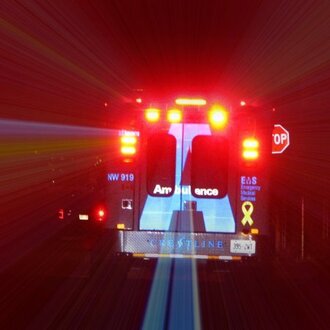
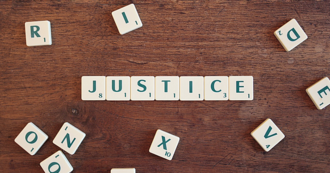.png)

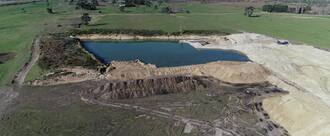
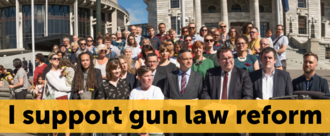.png)
